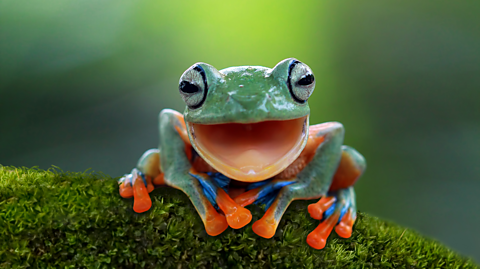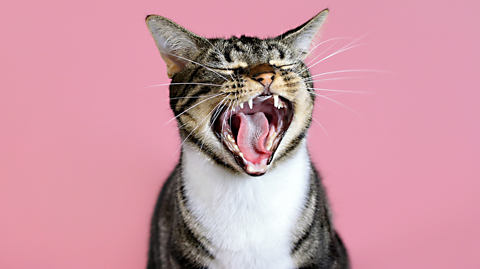Albert Einstein, Barack Obama, Malala Yousafzai. Most of us have heard of the Nobel Prize and some of its recipients from across the years.
But perhaps lesser known is the Ig Nobel Prize, an annual ceremony that awards prizes to those that have some rather unusual achievements in academia.
Since its establishment in 1991, their aim has been to āhonour achievements that first make people laugh, and then make them think." The Ig Nobel prize, which parodies the word ignoble, is awarded across a wide range of research fields, from chemistry and medicine to peace and psychology.
“óĻó“«Ć½ Bitesize takes a look at three of the outlandish studies that have received the award so far.

Prize for Literature 1999: A perfect cup of tea
The components of a perfect cuppa have long been debated.
In a six-page document that won the 1999 Ig Nobel Prize for Literature, the British Standards Institution (BSI) led research that aimed to settle the dispute once and for all.
The outcome was a paper published in 1980, entitled, Method for Preparation of a Liquor of Tea for Use in Sensory Test, which provides instructions on the proper way to make the beverage. It even has the BSI number BS 6008, making this way of making tea an official British standard.
The word liquor in the paper title refers to a solution prepared by the extraction of soluble substances.
As a standard, BS 6008 can be adapted for a range of factors, such as making tea with or without milk. It advises that an average of 2g of tea should be used for every 100ml of water and that tea pots should be carefully filled within 4mm-6mm of the brim with freshly boiling water.
Once the lid has been placed on top, the pot should be left to brew for six minutes. Finally, tea should be poured on top of milk to prevent scalding. However, if you do pour your milk in last, best results are seen with tea at the temperature of 65 to 80Ā°C. Now thatās tea-riffic!

Prize for Physics 2000: Levitating frogs
Youāve probably heard of the phrase āwhen pigs flyā, but what about flying frogs? This became a reality in 2000, when the British-Dutch physicist, Sir Andre Geim, won the Ig Nobel Prize for successfully levitating a live frog with magnets.
But Geim wasnāt levitating frogs without a scientific cause. His experiment demonstrated a concept called diamagnetism.
Materials with diamagnetic properties, such as water, have been proven to be repelled by magnetic fields. In this experimentās case, the fields were so powerful they could hold up a frog.
One observer of the experiment, described the unharmed frog as it "happily joined his fellow frogs in a biology department."
When the image of Geimās flying frog research was published in an April 1997 issue of Physics World, it was thought by some to be an April Foolsā Day prank.
In 2010, he was awarded the Nobel Prize for Physics, for his experiments with a two-dimensional material called graphene. So far, he is the only individual to have been awarded both a Nobel and Ig Nobel Prize.

Prize for Biology 2021: Cat-human communication
The prize for biology was given to a team of Swedish researchers, Susanne Schƶtz, Robert Eklund, and Joost van de Weijer for their purrr-fect analysis of cat-human communication.
The study found that the language used by cats is much more advanced than we may have originally thought.
Over the period of 10 years, the researchers assessed variations in purring, chirping, meowing, moaning, squeaking, hissing, yowling, howling and growling to name a few.
While considering factors such as pitch, melody and voice quality, they looked at how cat sounds are produced and articulated, the acoustic properties of cat sounds and how humans perceive these.
Schƶtz argued that domestic cat have distinctive voices in different moods, situations and contexts. To prove this, she played audio clips of meows to a group of 30 people, where most guessed the catsā moods from pronunciation. Participants who were cat owners themselves topped the best guesser list.
This article was published in November 2022
Three 'immortal' creatures that have fascinated scientists for decades
These animals seem to have cracked the code to stop, or even revert, ageing.

Why do some of us like gross things?
The surprising attraction of pimple popping and other 'disgusting' stuff

Eight things you use every day but never knew their name
What are the bits on the end of shoelaces called? Or the metal at the top of a pencil?
